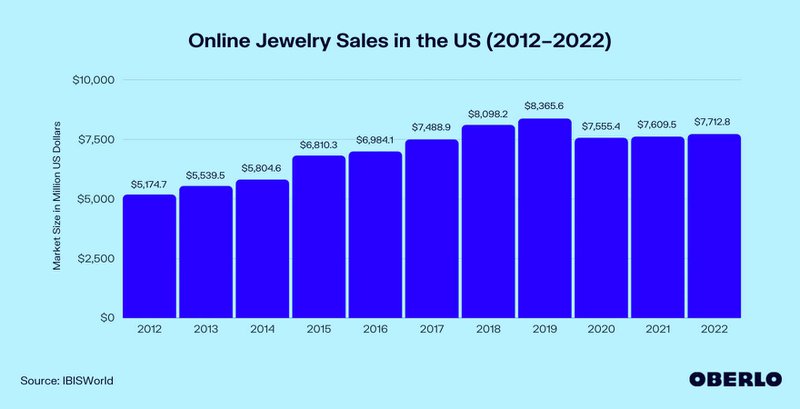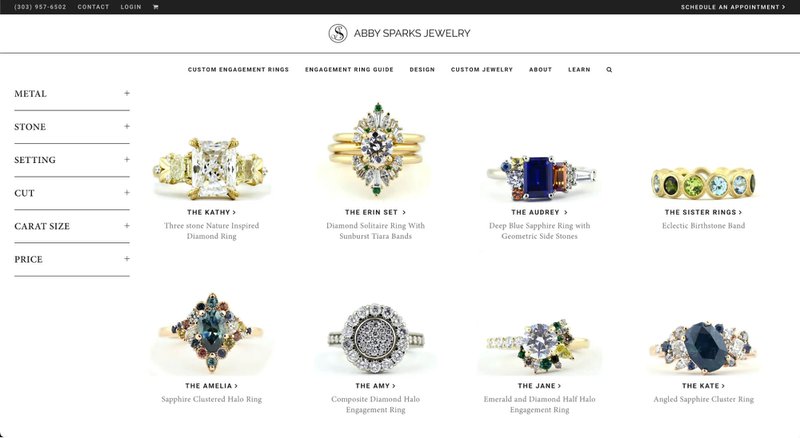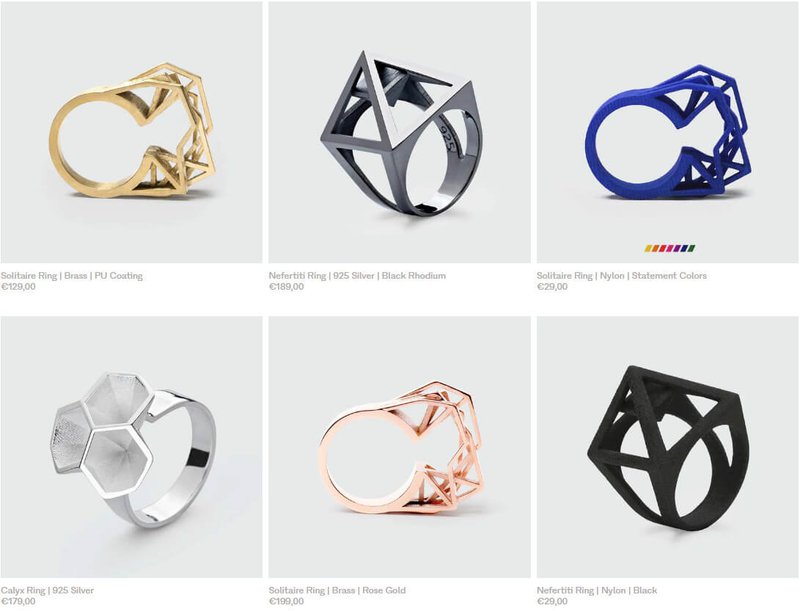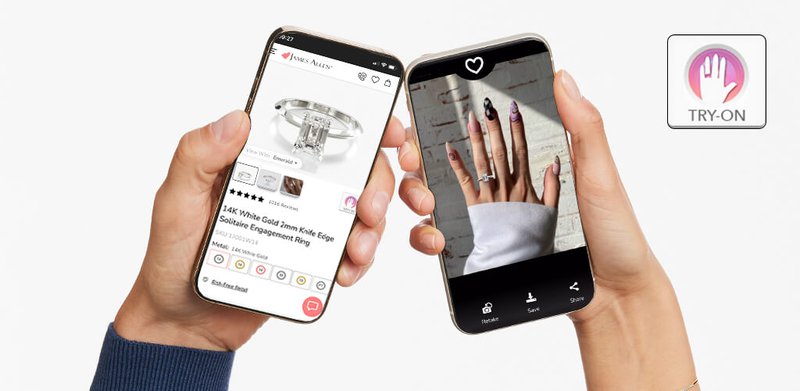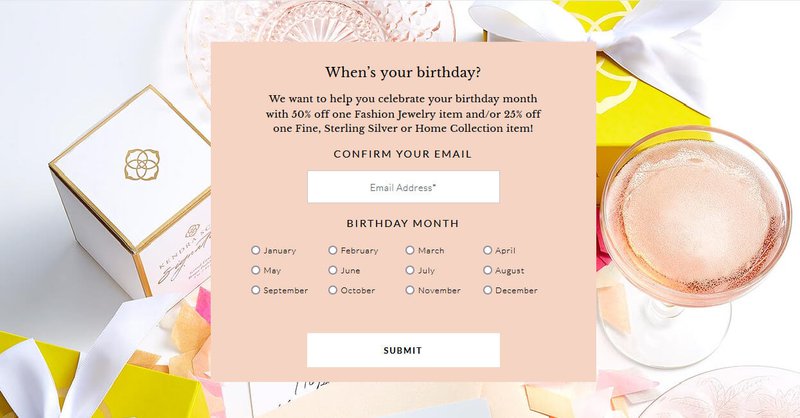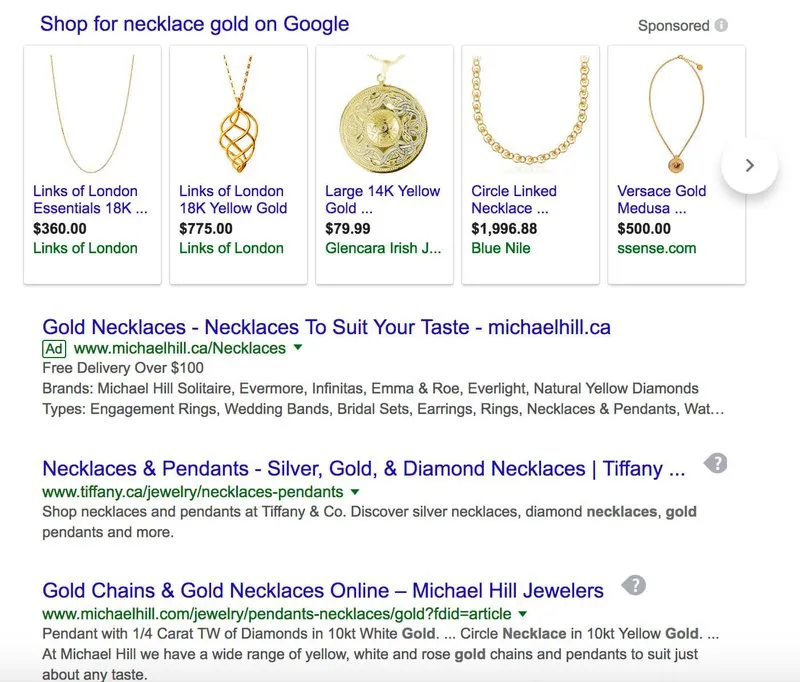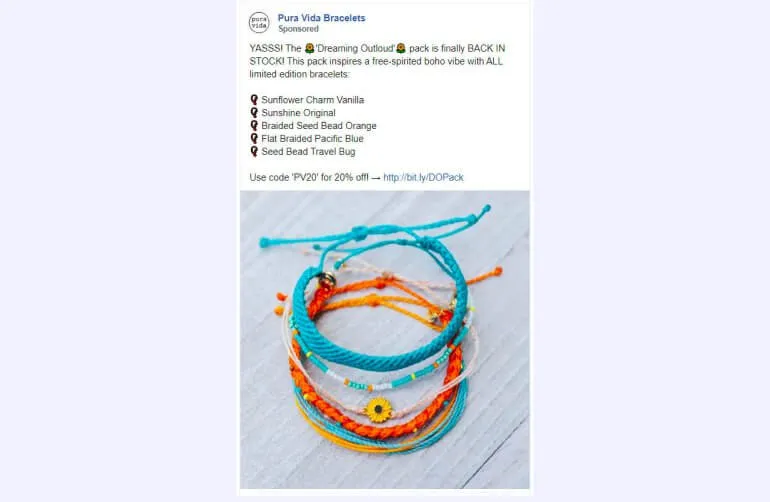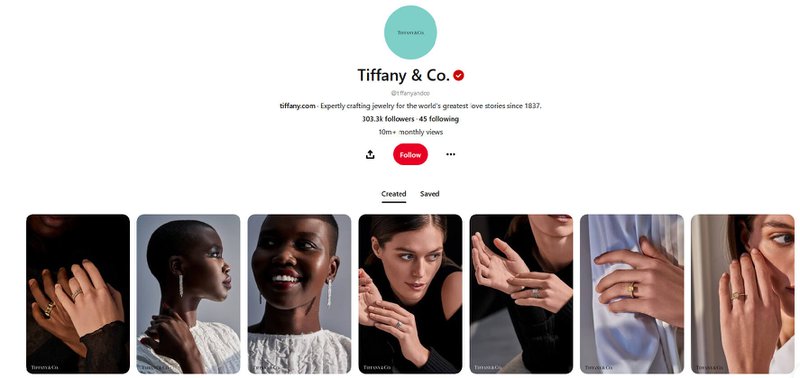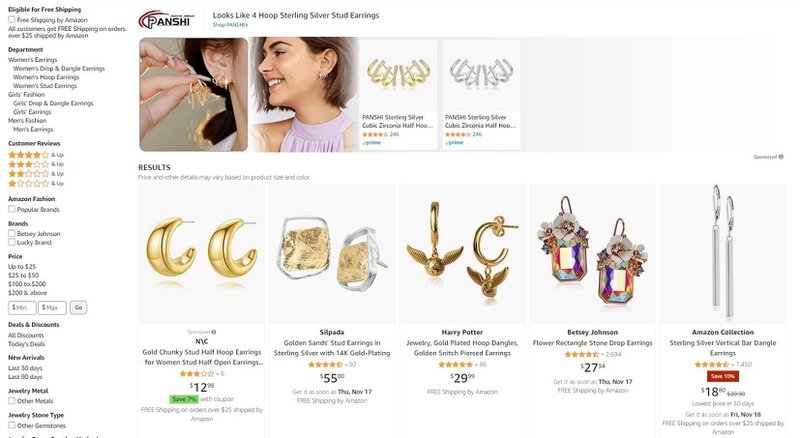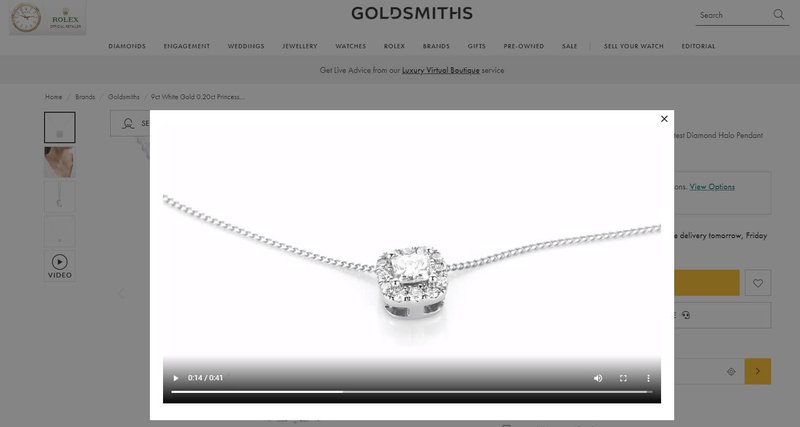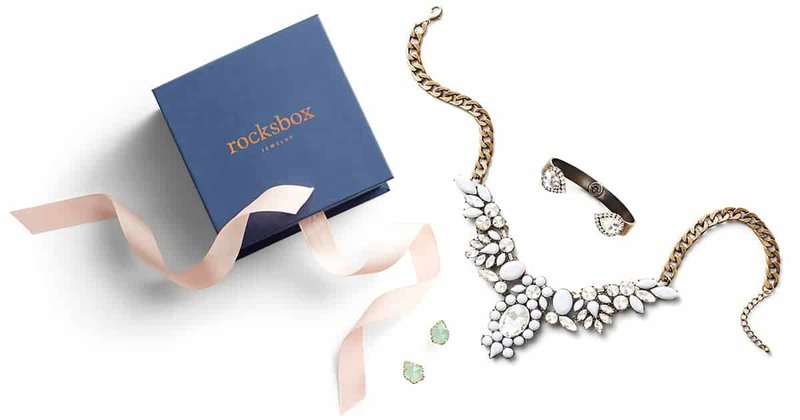6 Strategies to Boost your Jewelry eCommerce Brand
Here are the top Jewelry eCommerce trends and strategies to try - social proof, subscription boxes, 360 videos, virtual try-on, organic social, and much more.
Updated November 6, 2024
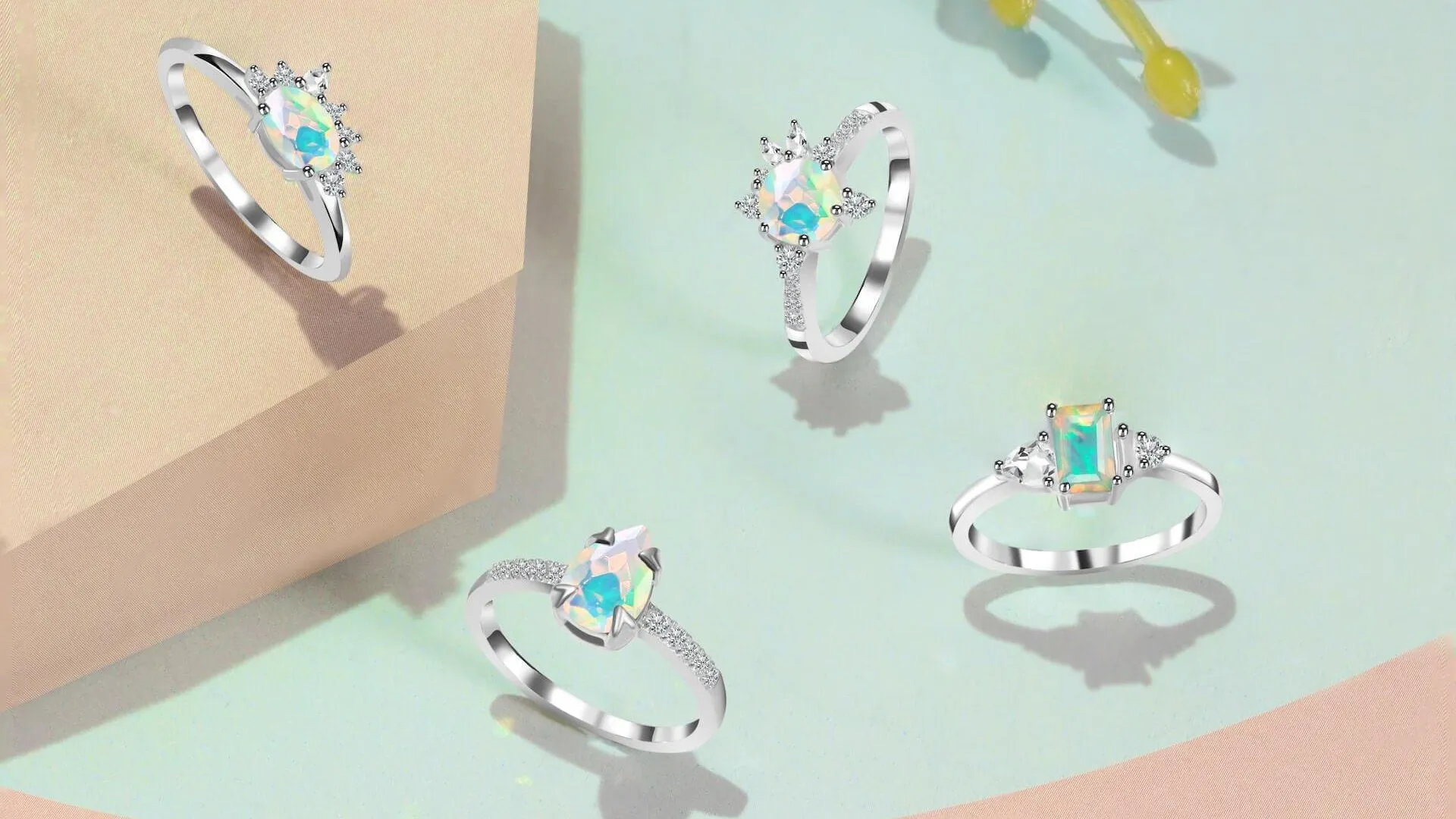
Jewelry is one of the most lucrative businesses on the planet and its sales are booming. It’s easier than ever to upload your pieces to a Shopify site, launch some ads and get selling.
Easier said than done right?
The challenge is that eCommerce owners get overwhelmed by all the gadgets, whistles, and bells out there and don’t know what direction to take to expand their stores.
The solution is not just another marketing strategy. Brands need to learn the latest trends, and hear from the experts what works and what doesn’t.
That’s why we’ve prepared a detailed guide on the dominant trends in the industry and the best marketing strategies you should test out to scale your jewelry eCommerce business this year.
Let’s dive in.
The state of the jewelry industry 2022
The jewelry industry has mainly been on an upward trajectory in the last ten years. Jewelry is one of the most popular products you can buy online, and the sales have been generating billions of dollars in the previous decade.
Online jewelry retailers took a hit in 2020 because of the coronavirus pandemic, dropping by 19%. Now that stores are opening up, online jewelry sales have been steadily increasing in 2021 and 2022. In 2022, they jumped to $7.7 billion.
Not only are sales going up, but jewelry prices are also on the rise. So this is the perfect time to invest in your jewelry eCommerce business.
Jewelry eCommerce trends
Here are some hottest online jewelry trends you need to master to grow your online jewelry store.
Customization
Custom jewelry is the name of the game. Historically, it was a privilege reserved for royalty, but modern technology has allowed it to be more affordable and widespread.
Customization allows your customers to create unique pieces and truly express themselves through their jewelry. It could be a small project like creating a unique wedding ring to a large recreation of a sentimental jewelry piece.
For example, Abby Sparks Jewelry creates highly elaborate jewelry pieces for its customers. The customer books a consultation with an in-house designer to share ideas, the designer comes up with a few designs, finalized them with the customer until they're satisfied, and the company produces and delivers the completed custom piece straight to their door.
3D printing
3D printing takes the idea of customization even further, allowing brands to produce relatively low-cost pieces that are highly customizable and can satisfy even the pickiest consumer.
3D printed jewelry is also fair trade jewelry by default. It’s made of recycled plastic and has become increasingly popular as consumers try to make more socially-conscious purchases.
This market is growing very quickly. Forecasts expect it to grow by $2.51 billion between 2020 and 2025.
For example, Radian is an established brand that produces 3D-printed jewelry. Their jewelry looks super impressive, is completely customizable, and looks just like regular jewelry
3D visualization
3D visualization helps solve one of the biggest challenges with selling jewelry online — the inability to get a full view of the jewelry piece when you’re looking at it online.
3D visualizations allow you to give a 3D preview of your pieces so that potential customers can examine them from every angle. And with a virtual try-on app, they can try on the pieces and see if they fit.
For example, James Allen, a jewelry retailer, allows their potential buyers to try on their rings virtually. Users take a photo of their hand, and their desired ring is superimposed on it.
Customers are more likely to buy jewelry from you if they can see if it looks good on them. The ability to try on a piece of jewelry is essential when you’re shopping for a special occasion, like a wedding.
Personalized customer experience
Another trend that’s on the rise is creating personalized customer experiences across the entire customer journey. It involves taking data from your customers and syncing it across multiple channels and platforms.
For example, you could ask newsletter subscribers about their favorite pieces, materials, and colors and then display those products in your ads, chat messages, and cart abandonment emails.
A great example of personalization is Kendra Scott’s special birthday discount popup. People who subscribe to their newsletter get a 25%-50% discount on specific jewelry collections they can use in their birthday month.
This strategy is a fantastic way to create loyal customers and boost their online shopping experience.
Now that we’ve covered the jewelry trends you need to watch let’s talk about specific strategies you should use to boost your sales.
Jewelry eCommerce marketing strategies
Since the eCommerce jewelry industry is on a slow and steady rise, it’s important to think of a clever and effective marketing strategy to grab a slice of that pie. The competition is fierce, and you must do your best if you want your online business to stand out.
Let’s examine some helpful marketing tactics you can implement to boost your sales and increase brand awareness.
Leverage Google Shopping campaigns
Google Shopping is one of the most effective eCommerce advertising channels for online retailers. It drives 76.4% of retail search ad spend and generates 85.3% of all clicks on Google Ads.
Retailers can both post their products free of charge as well as pay for ads. Google Shopping display ads allow you to display products (with an image and price) at the top of the search results and even above text ads.
Google Shopping ads are a great opportunity to reach relevant bottom-of-the-funnel customers that already know what product they're looking for and are ready to purchase it.
Facebook and Instagram ads are a must
It’s impossible to discuss eCommerce marketing campaigns without mentioning Facebook and Instagram. They’re the most prominent social networks, and they’re an absolute must for any jewelry brand.
Facebook Ads is still one of the main channels eCommerce brands use to advertise their products — it’s projected that US advertisers will spend $58.11 billion on Facebook ads by the end of 2022. Facebook Ads include Instagram, which attracts users that have a high purchase intent. Stats show that 50% of Instagram’s users visit the brand’s site after viewing a story.
Here’s one of our favorite brands - Pura Vida. In 2020, they ran a Facebook campaign for Memorial Day. They launched a few collection ads and saw a 2.6x increase in their total purchases and a 6.3x increase in daily sales.
Invest in organic Pinterest
Speaking of purchase intent, here’s another platform you can not miss. Pinterest has the highest buyer intent compared to other social platforms. In fact, 90% of weekly pinners make purchase decisions on Pinterest and 50% have made a purchase after seeing a promoted pin.
Pinterest is also a great place for organic reach. People go there to get recommendations and to recommend products to others, so the platform can be a great way to get lots of free exposure.
Since it’s a visual platform, you’ll have to invest time in creating high-quality photos of your jewelry that emphasize its beauty and captivate the audience. This alone may drive your engagement and boost your brand awareness.
Tiffany & Co. is a luxury jewelry company that has absolutely nailed their content on Pinterest. They have grown their audience to over 10 million monthly views by posting striking visuals.
Want to grow your Pinterest reach + impressions? Check out our list of the top Pinterest growth agencies and Pinterest experts to work with.
Go all in on Amazon Ads
Amazon Ads is a fantastic marketing platform that most brands don’t use enough. They’re cost-effective and can reach huge numbers of people.
The average cost-per-click on Amazon Ads is $0.35 and the average conversion rate is 9.87%, almost 8x more than the average eCommerce conversion rate.
And these ads have a huge reach. There are 98.07 million people in the US use the Amazon shopping app at least once a month and Amazon’s daily impressions in 2021 were anywhere between 40,000 to 60,000.
The number of people with Amazon Prime accounts in the United States has risen by almost 50% since 2017, and Amazon has just announced that they’re opening up the ability for merchants to email their customers on the platform. So the ability to convert loyal Amazon Prime members and then retain them as returning customers is bigger than ever.
Create 360 product videos
Jewelry products are usually not cheap and customers want to see how they look and feel before purchasing. Product images are great but they can’t give a detailed look into your products. That’s when a 360-degree product video can come in handy.
Jewelry retailers should use 360-degree product videos to help their customers convert. 360-degree videos can help online shoppers get a more detailed look, from all angles.
A good example of this is the online shop Goldsmiths which uses 360-degree product videos to showcase their jewelry.
Pro tip: Ask your customers to send you images and videos of the product as social proof and use them for your ads and social media feeds.
Offer a subscription product
Some jewelry retailers offer jewelry as a subscription box, which is a great way to get your customers hooked. Jewelry buyers love to get a new piece every month. They can try those products out, swap them, or buy them if they fall in love with the pieces.
Sometimes, these subscription services only offer costume jewelry, but you can also get high-end jewelry as well. These services are a great option for customers who want a taste of expensive jewelry without the hefty price tag.
Rocksbox has been running such a campaign with success. The subscription service is a jewelry rental operation that lets the customers get three pieces from high-end jewelry designers for $21. They get a new box each month and send the old one back.
Looking to boost your eCommerce jewelry brand?
Do you own an online jewelry store and want to boost brand awareness? Or do you want to start the right way, but aren’t sure how?
We’re here to help. We can match you with one of our 600 experienced marketers with the right industry experience to help you launch a successful online jewelry business and scale your brand. Get started now!
FAQs
Is eCommerce jewelry profitable?
The jewelry business can be very profitable, and you can get profit margins between 25% and 75%. The jewelry business is not like selling shoes for example, where everyone knows how much a certain model of Nike sneakers should sell for. A customer can’t determine the exact price tag on a bracelet, it’s all about the perceived value of the jewelry piece.
What is the best way to sell jewelry?
The best way to sell jewelry online is to use an eCommerce platform like Shopify or BigCommerce. Launching a strong marketing campaign can be a great way to sell jewelry. It’s cost-effective and allows you to reach wide audiences.
What percentage of jewelry sales are online?
Online jewelry sales account for between 5% and 10% of the jewelry market. The majority of jewelry sales still occur in brick-and-mortar stores, as fine jewelry is a large investment, and many prefer not to buy it without seeing it in person first.
Also, consumers generally know less about precious metals and gemstones and rely on salespeople for guidance.
How much money do you need to start a jewelry business?
Starting a jewelry business may cost between $9,200 and $29,000. Starting an online store costs less than a brick-and-mortar store because there is often no overhead but there are still marketing and inventory costs.
Can I make money selling jewelry online?
Jewelry is one of the easiest things to sell for a good profit. The market is strong, so there’s a lot of potential for investing in jewelry. With the right information, you can go very far and easily start a profitable business. Big brands like Tiffany & Co. have very successful online stores that have precious stones, costume jewelry, and necklaces of all types. Small jewelers that sell handmade jewelry are becoming popular as well.
